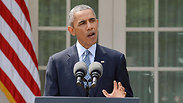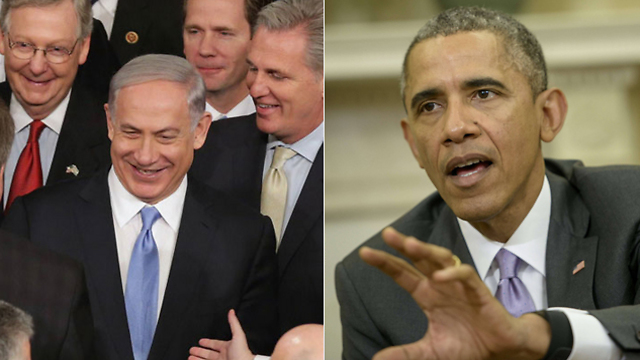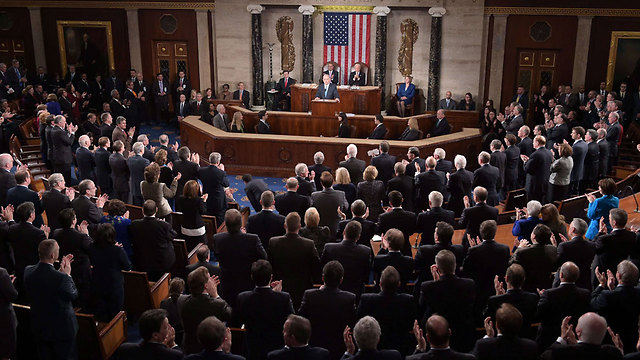
US President Obama
Photo: Reuters
The Senate begins debate Tuesday over legislation empowering Congress to review and possibly reject any nuclear pact the Obama administration develops with Iran.
The bill approved by the Senate Foreign Relations Committee has gained the tacit approval of Obama, and proponents are trying to discourage any changes. They recognize that politically driven amendments could undermine Democratic support and sink the carefully crafted measure.
The legislation would block Obama from waiving congressional sanctions for at least 30 days while lawmakers weigh in. And it would stipulate that if senators disapprove the deal, Obama would lose authority to waive certain economic penalties - an event that would certainly prompt a presidential veto.
Among proposed additions to the bill are demands that Iran release any US citizens it is holding and refrain from any cooperation with nuclear-armed North Korea. Another insists that any agreement be treated as an international treaty, requiring two-thirds ratification by the Senate.
Another set of amendments would block any sanctions relief for Iran until it meets goals the US set years ago as negotiating stances and has long since abandoned.
US Secretary of State John Kerry and Iranian Foreign Minister Mohammad Javad Zarif met Monday in New York for the first time since April 2, when world powers and Iran sealed a framework agreement. They now have little more than two months to meet their own June 30 deadline for a comprehensive accord.
Neither man spoke to reporters as the meeting got underway, but earlier Kerry told a UN conference on nuclear non-proliferation that a deal would make the world a safer place. "I want you to know the hard work is far from over and some key issues remain unresolved," he said. "But we are, in fact, closer than ever to the good comprehensive deal that we have been seeking. And if we can get there, the entire world will be safer."
Meanwhile, Republican presidential candidates are lining up to oppose any deal with a government the US considers the world's leading state sponsor of terrorism and to show their support for Israel.


















